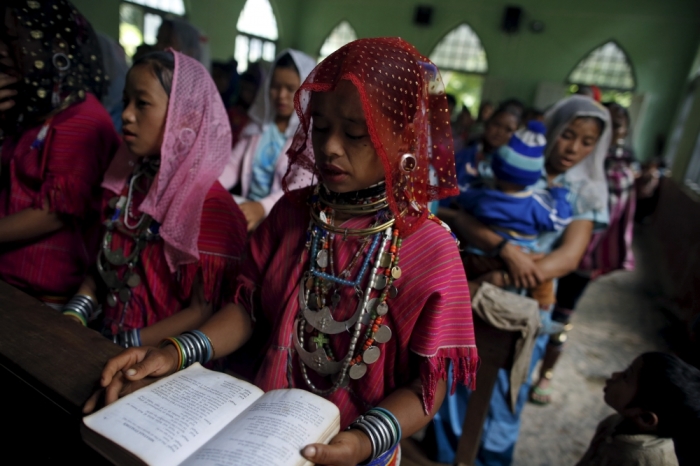Thousands of Christians Flee Myanmar's Conflict Zones to Escape Religious Persecution

With an escalation of fighting between ethnic rebel groups and government troops in Myanmar's conflict areas that are spread along the country's borders, civilians from ethnic and religious minorities are being forced to flee for safety. Tens of thousands of Christians have taken refuge in Malaysia, according to reports.
More than 100,000 Christians from Myanmar, formerly known as Burma, now live in Malaysia as refugees after recently fled their homes because of religious persecution, according to a report by TRT World, Turkey's national public broadcaster.
"Myanmar isn't safe for us. They killed people, sent people to jail because of religion," a Christian refugee was quoted as saying.
Myanmar's border states have been the scene of some of the world's longest running civil wars. Ethnic minority groups have been fighting for greater autonomy in their respective states and have been resisting the military's efforts to assimilate them into the majority Burman culture ever since Burma achieved independence from British rule in 1948.
While Burma's politics has been dominated by the ethnic Burman majority, most of the country's estimated 4 million Christians are from ethnic minorities who live in states along the country's borders with China, Thailand and India.
Some of the ethnic minorities formed their own armies to resist attacks by military personnel, which are often carried out without any provocation. Military attacks include landmine explosions, rape of women, indiscriminate killing of people and forced displacement, according to the World Evangelical Alliance's Religious Liberty Commission.
Myanmar was ranked 23rd on Open Doors' World Watch List of places that are most hostile to followers of Christ for their faith, with believers regularly prevented from practicing their religion.
Groups such as the Ma Ba Tha, an organization of radical Buddhist monks, have reportedly pushed to introduce "Protection of Race and Religion" laws, which are said to build "insurmountable hurdles for conversions and religiously mixed marriages."
Nearly 25 percent of all new refugees in the United States since 2007 are from Myanmar, and an overall reduction of refugee visas could affect such Christian refugees from Myanmar the most.
Meanwhile, two assistant priests in Myanmar remain missing since the Christmas Eve after they helped local journalists cover the bombing of their Catholic church building in the conflict-ridden Shan state.
The priests, identified as Dom Dawng Nawng and La Jaw Gam Hseng, helped journalists from Yangon-based news organizations cover the bombing of their St. Francis Xavier Catholic Church in Mongkoe Township near the Chinese border, which was hit by airstrikes on Dec. 3, 2016, according to Morning Star News.
The parish priest, nuns and about 1,000 Catholics from the area had fled to China before the bombings due to heightened tensions between the military and local ethnic groups. No one was hurt in the church bombing.
Nobel laureate Aung San Suu Kyi, whose party won the country's first general election following 56 years of military junta rule in 2015, has been criticized for not doing enough to protect minorities, including Christians and Rohingyas, in the country.




























